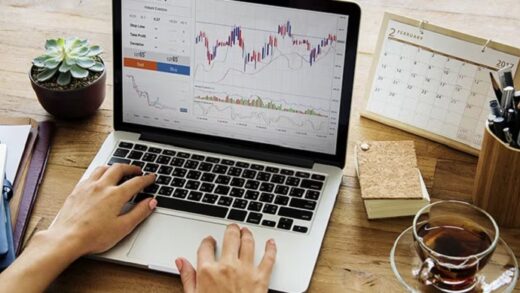The forex market trades an average of $4 trillion per day. While this sounds like a lot of money changing hands all at once, the reality is that the bulk of this sum represents simply currency speculation by large banks and investment funds.
For most individuals, trading in the forex market isn’t feasible without taking on extremely high levels of risk. Here you will learn how to set up your first online account to start investing in currencies full time.
Open an Online Brokerage Account
You’ll need an online brokerage account so that you can buy and sell foreign currencies through your broker. There are many brokers available, though you should look at a few before choosing one. Many websites offer a list of reliable brokers; you can check it out here on the Saxo site. You should choose one only after doing adequate research to ensure they have a solid reputation for safe trading, fast execution and reasonable fees.
Pick a Currency Pair to Trade
The forex market is made up of individual currency pairs. Each pair represents the value of one currency in terms of another. For example, the EUR/USD represents how much one Euro will be worth in U.S. dollar terms at any given time. The higher an exchange rate rises, the weaker that currency is relative to its counter-currency. In other words, it’s usually a good idea to attempt selling currencies that have gained value against their respective counter-currencies – since you’ll have a chance to sell them high and repurchase them cheap as the exchange rate drops again.
Start Trading Small to Get a Feel for the Market
If you begin by trading with 200:1 leverage, you’ll be very likely to lose everything in your account if you make even one mistake. More conservative brokers let their customers trade with 50:1 or even 33:1 leverage – which is still high enough that making mistakes can lead to losses above all the cash in your account.
You’re much better off practising on a virtual forex demo account until you get comfortable using charts and placing orders before taking on real capital. And when you do start trading with real money, always use at least 25% less leverage than your broker allows (if they allow any leverage at all). You won’t understand the true nature of the forex market until you’ve done at least several months of full-time trading.
Only Use Money You Can Afford to Lose
Successful currency speculation is complicated enough never to be attempted with money you need for other purposes, like covering the rent or buying food. Trading in currencies means investing in foreign economies, which can result in significant gains – but just as easily result in considerable losses if you’re wrong about an investment. You’ll want to have at least six months’ worth of living expenses set aside before giving up your job and putting all your investments into one basket (currency speculation). And even then, take all possible steps to hedge your bets.
As hard as it may be in this era of low-interest rates, it’s essential to take some of your investable capital and put it into safe, short-term investments like high-quality bonds or certificates of deposit (or even money market funds). Your currency speculation account should be completely separate from your other savings.
Be Patient and Don’t Try to Time the Market
The forex market is highly volatile. There are dozens of currency pairs at any given time that have erratic trends. These will either continue for a long time (weeks, months and sometimes years), reverse themselves and continue in the opposite direction (indefinitely), or end in a sideways pattern with little net change occurring.
The best strategy is to choose one currency pair at random on any given day and trade it, so long as the trend remains relatively straightforward. If you’re not sure which currency pair to choose for speculation, pick one randomly from a list – if you get a good one, great. And if it doesn’t work out, then try again tomorrow.
Don’t waste time trying to figure out whether the EUR/USD is going up or down today. This is because even if you guess right only 50% of the time (which is unlikely), playing two currency pairs each day means your overall odds of making money will be no better than chance anyway.
Let’s conclude
If you’re new to trading we always strongly advise that you start your trading journey by using a demo trading account. It will allow you to practice various strategies without risk to your savings or cash flow.



